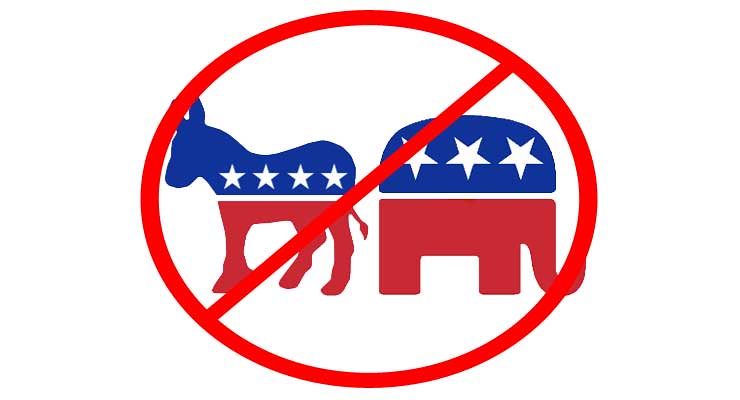With the 2020 presidential election looming, tensions are running high. As many are hoping to get the historically unpopular President Donald Trump out of office, all variables are being scrutinized — including the presence of third party candidates.
House Representative Justin Amash announced his campaign for president as a Libertarian on April 28. If he gets his party’s nomination, he would run against Trump and former Vice President Joe Biden.
His announcement on Twitter sparked outrage; people compared him to Jill Stein, who many blame for Hillary Clinton’s loss in 2016, and called for him to end his campaign immediately. Many believe a third party presence in the campaign would draw voters who would otherwise vote for Biden to vote for Amash, helping Trump win a second term.
While there is no evidence a Libertarian candidate — especially one who was a former Republican — could draw a substantial amount of votes from a Democrat, it isn’t an unreasonable assumption. Biden is an established politician who could draw in disenfranchised Republicans and independent voters who dislike Trump.
However, this is mostly speculation. There is little evidence Republicans would be willing to “cross lines” and vote Democrat for this election. With the increase in political polarization across America, people are more likely to just vote for the party they have always voted for, regardless of how much they like the candidate.
Biden isn’t exactly the bridge between the two parties either. While he has been often referred to as a moderate Democrat, Biden has a long record of almost always voting progressively as a senator, siding with conservatives about 13 percent of the time.
Amash, on the other hand, voted conservatively almost 87 percent of the time. Biden and Amash clearly have almost no similarities regarding policy decisions. Because of this, it wouldn’t be crazy to expect a Republican or independent conservative voter to not support Biden because of his policy decisions.
This is true for what one may consider a “normal” election, but many feel the current president is a threat to the country. Because of his unpopularity, they are hoping to swing voters who highly dislike Trump over to Biden. A third party would offer them another option if they dislike both Trump and Biden.
English teacher Don Fry believes the election is too important to risk third party candidates potentially spoiling the election against Biden.
“With a leader who is constantly pitting himself against anyone and everyone who may disagree with him or threaten his narrow-visioned authority, we are a country divided,” Fry commented. “With that in mind, now is not the time for a third-party candidate. Now is not the time to pursue the ideologies of our democracy.
“Instead, now is the time to preserve our democracy by replacing our current dishonest, dividing leader with one who can unite our country and restore integrity and honor to the highest office in the land.”
This election does have added significance to it. But third parties have often been looked at as spoilers in close presidential races. In many cases, they have been, but in others, they are used as scapegoats.
A perfect example of this is Stein, who is often attributed blame for Clinton’s loss in 2016. However, CBS conducted an exit poll of Stein’s voters which showed evidence they may not have spoiled the election; the majority said their choices were between Stein or staying home.
According to the poll, “A quarter [said] they would have chosen Clinton, 14 percent [said] Trump, and 61 percent [said] they would not have voted.” The 25 percent who would have voted for Clinton if Stein were not an option wouldn’t be enough to beat Trump. It is highly likely that these voters would actually stay home too, as almost half of adult Americans don’t bother.
Whether or not third parties are always spoiling presidential elections, their votes are technically “thrown away”; only a Democrat or Republican has any chance to win. Third parties have to fight to get their candidates on the ballot.
It is a sad reality that American voters must often take a stance against a candidate — rather than for someone they personally support — under the current presidential voting system. In time, perhaps we will adopt a system that promotes multiple parties, such as the ranked vote.
While the US continues to use plurality voting, a two-party system is inevitable. For now, Americans must be happy choosing the lesser of two evils, throwing their vote away, or just staying on the couch come November.









